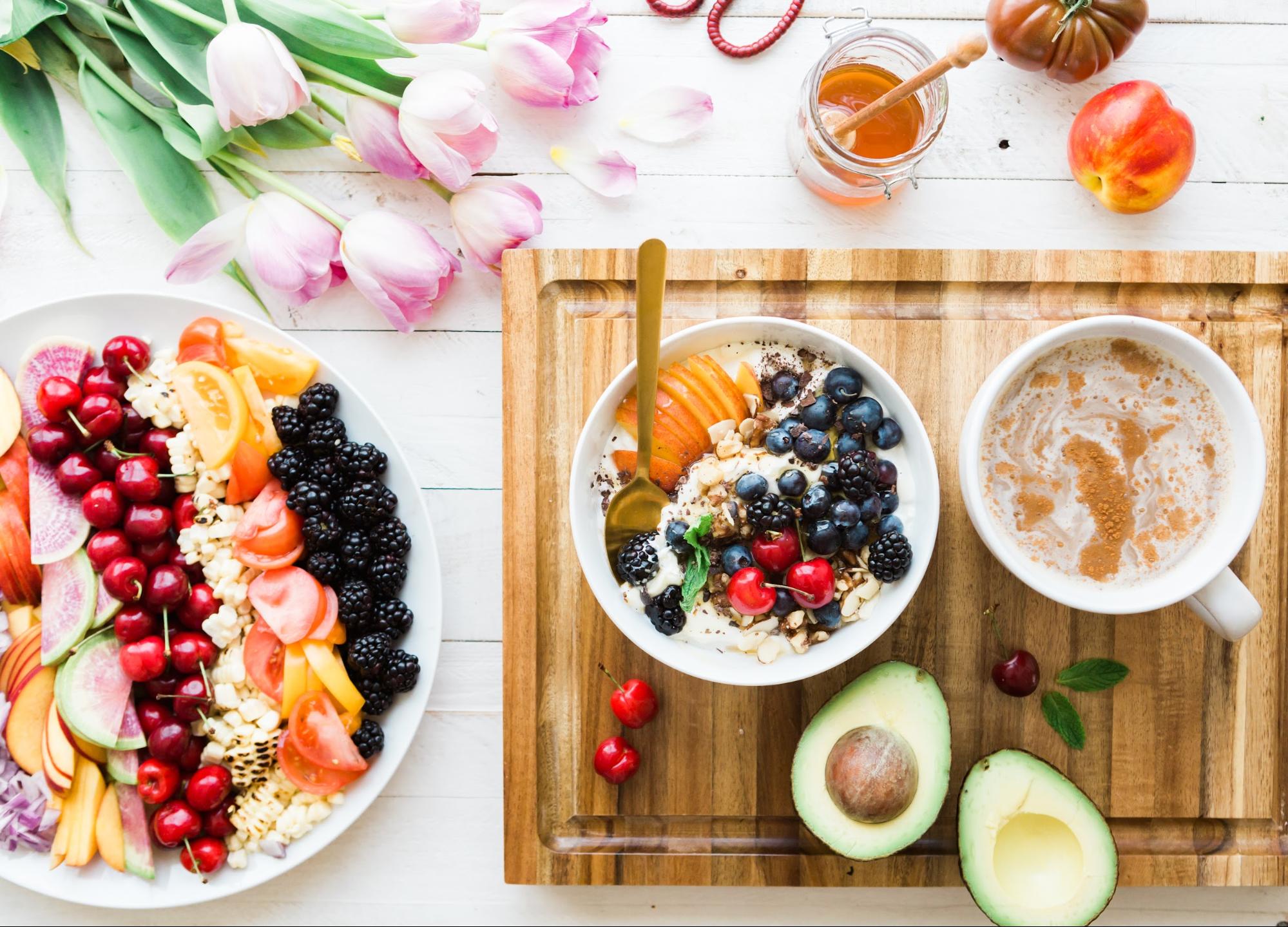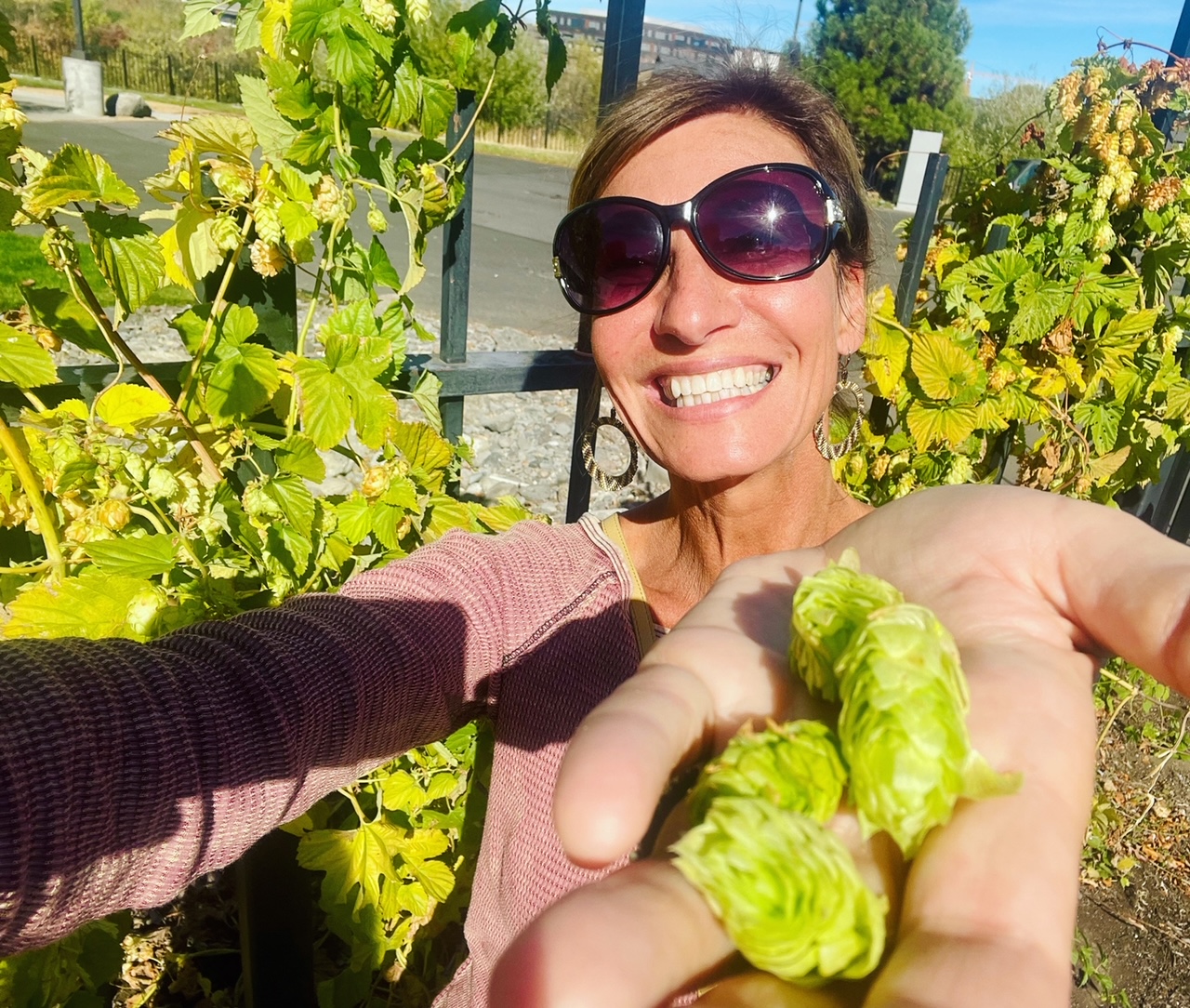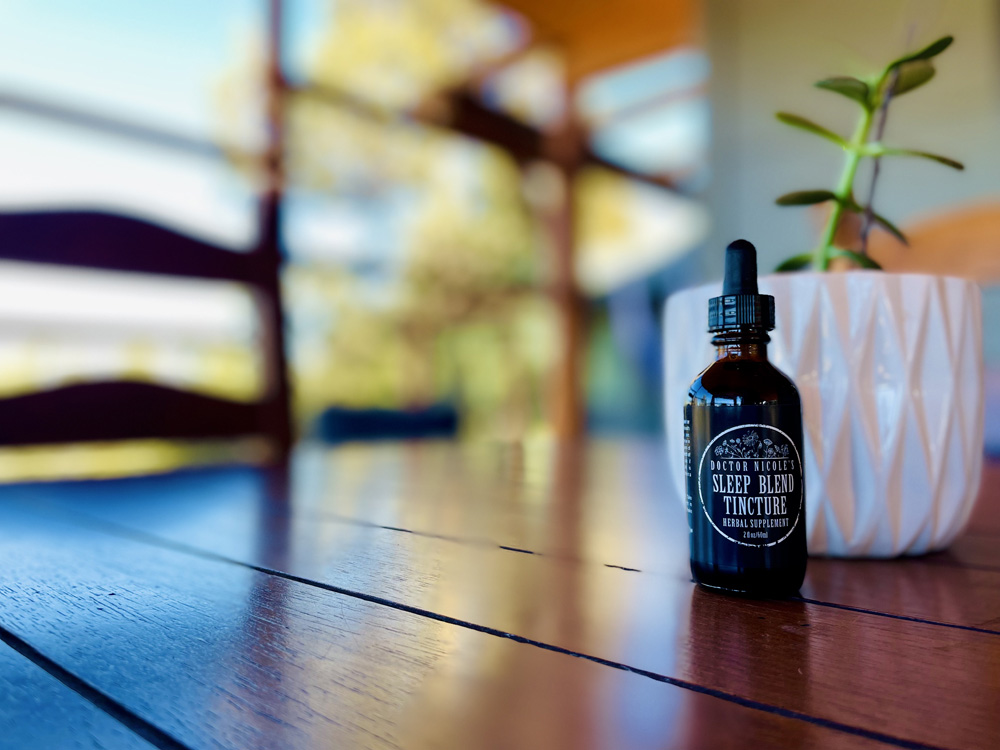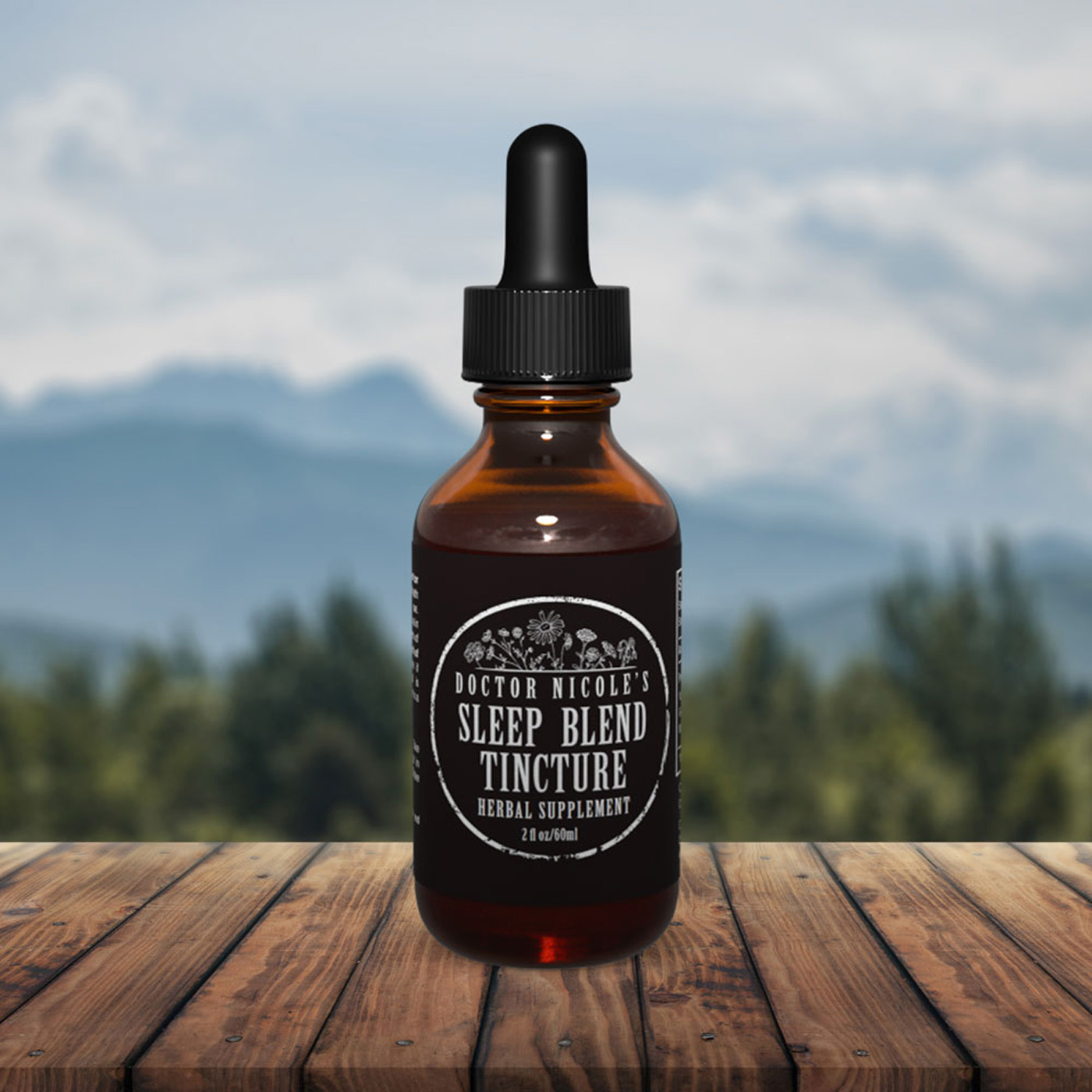From Plate to Pillow: The Science of a Sleep-Friendly Diet
If you struggle to get enough deep, restful sleep each night, your diet may be to blame. New research has found that the amount of fiber, carbohydrates, fats, and proteins we consume throughout the day may directly impact our ability to fall asleep as well as the depth and length of our rest. In this post, we examine their findings plus explore specific herbal remedies that can help improve your overall sleep quality. Let’s get started!
Eat Well for Better Rest
A cross-sectional study out of Japan examined the association between macronutrients and sleep parameters by analyzing data from 4,825 users of the Pokémon Sleep and Asken smartphone apps.1 The findings may surprise you.
Interestingly, a higher protein intake led to longer sleep time — on average 10 to 11 minutes more, compared to those who consumed less protein. The average daily recommendation is 0.36 grams per pound of body weight — although many dietitians set the bar much higher at 90 to 120 grams per day for a 150-pound person to maintain lean body mass and promote weight loss. Lean meats, fish, eggs, nuts, beans, plain Greek yogurt, and tofu are all good sources.
Eating more fiber also helped to increase sleep time and minimize sleep disturbances throughout the night. Aim for a minimum of 25 to 30 grams a day. Flaxseed, chia seed, whole grains, fruits, vegetables, beans, and nuts are excellent options. Higher-carbohydrate foods were shown to promote deeper, more restful sleep as well.

On the flip side, those who ate a lot of fat slept on average six to 10 minutes less and had higher levels of sleep disruption. Monounsaturated fats seem to be the worst offenders as they delay falling asleep by an extra five minutes and encourage more time awake at night. This type of fat is found in olive oil, eggs, avocados, and pecans. However, polyunsaturated fats — think: fish, walnuts, and vegetable oils — had a much weaker negative impact on sleep quality and delayed sleep times. It is also wise to avoid excessive salt, as it has also been shown to shorten sleep length and continuity.
While these findings are good food for thought, the authors are quick to point out that the study had limitations, as participants may have inaccurately reported their dietary and sleep habits. The researchers also didn’t adjust for marital status, medical history, medication use, or alcohol and smoking habits.
“Although this study is cross-sectional, the results highlight the complex potential role of dietary factors in sleep regulation and suggest the possibility of dietary interventions to enhance sleep health,” the team concluded.
Fill Your Plate With These Foods
Looking for additional food-based inspiration to help promote quality sleep? Here are several suggestions to get you started:
Leafy greens like spinach and kale are rich in magnesium, which helps you to fall asleep faster and improves sleep duration due to the stress-relieving properties of the mineral.2 A handful of almonds each day was shown in one study to improve sleep quality in women as the nuts are a good source of magnesium, potassium, calcium, and fiber — not to mention calming and sleep-inducing tryptophan and melatonin.3
A good source of potassium, bananas are a fantastic choice as research has shown that lower blood potassium concentrations are associated with poor sleep.4 Tart cherries are another slumber-friendly option as they naturally contain melatonin, otherwise known as the sleep hormone. Drinking a glass of tart cherry juice or eating the fresh fruit helps to raise melatonin levels, thereby improving insomnia symptoms.5

My Top Herbal Recommendations For Sound Sleep
Even when you are eating a sleep-friendly diet, you may still struggle with getting enough solid, rejuvenating sleep. This is where the power of herbal remedies really shine. Our Sleep Blend contains concentrated extracts of time-tested botanicals to promote sound sleep. These include:
VALERIAN ROOT
- Enhances sleep by increasing the levels of the neurotransmitter gamma-aminobutyric acid (GABA)
- Helps decrease frequent waking at night and calms restless sleep
- Helps people fall asleep faster
- Promotes sleep quality and length
- Helps with sleep issues connected with menopause
- Soothes stress and anxiety
- A double-blind study of valerian root conducted in Sweden by the Foellinge Health Center found that “forty-four percent [of the participants] reported perfect sleep and 89% reported improved sleep from the preparation” without any side effects.
HOPS
- Sedative properties to help with sleep
- Enhances the production of GABA, a calming brain chemical that promotes sleep
- Helps increase sleep time; works best in combination with valerian root, also in this blend
- Helps lower body temperature, which helps people enter into a relaxed state for sleep
CHAMOMILE
- Acts as a sedative
- Calming to the nervous system
- Soothes muscle aches that may disrupt sound sleep
- Contains apigenin, an antioxidant that can help induce sleep
PASSION FLOWER
- Herbal sedative
- Anxiolytic (soothes anxiety) and helps calm the body and mind
- Enhances sleep quality
EXCELLENT REMEDY FOR SLEEP
“This tincture should be by your bedside, it tastes delicious. No need to wash it down. On normal nights I take one full dropper and feel sleepy within 30 minutes. On a bad night I might take two full droppers due to pain. Excellent.” – Penny
If restful nights have been out of reach, our potent Sleep Blend may be the answer. Formulated with calming herbs traditionally used to support deep, restorative sleep—like valerian, passionflower, hops, and chamomile—this gentle, natural remedy helps you unwind and quiet the mind so you can wake up feeling refreshed. Whether you’re dealing with occasional sleeplessness or looking to support a more balanced sleep cycle, this blend offers a simple, plant-based solution. Stop by the apothecary today and explore how the power of nature can help you reclaim your nights and promote deep, rejuvenating sleep.
Nicole Apelian
Nicole’s Apothecary Products in this Post
References
- Seol, J., Iwagami, M., Kayamare, M. C. T., & Yanagisawa, M. (2025). Relationship Among Macronutrients, Dietary Components, and Objective Sleep Variables Measured by Smartphone Apps: Real-World Cross-Sectional Study. Journal of medical Internet research, 27, e64749. https://doi.org/10.2196/64749
- Zhang Y, Chen C, Lu L, et al. Association of magnesium intake with sleep duration and sleep quality: findings from the CARDIA study. Sleep. 2022;45(4):zsab276. doi:10.1093/sleep/zsab276
- Liang H, Beydoun HA, Hossain S, et al. Dietary approaches to stop hypertension (DASH) score and its association with sleep quality in a national survey of middle-aged and older men and women. Nutrients. 2020;12(5):1510. doi:10.3390/nu12051510
- Li M, Heizhati M, Wang L, et al. 24-hour urinary potassium excretion is negatively associated with self-reported sleep quality in the general population, independently of sleep-disordered breathing. J Clin Sleep Med. 2022;18(11):2589-2596. doi:10.5664/jcsm.10168
- St-Onge MP, Mikic A, Pietrolungo CE. Effects of diet on sleep quality. Adv Nutr. 2016;7(5):938-949. doi:10.3945/an.116.012336






